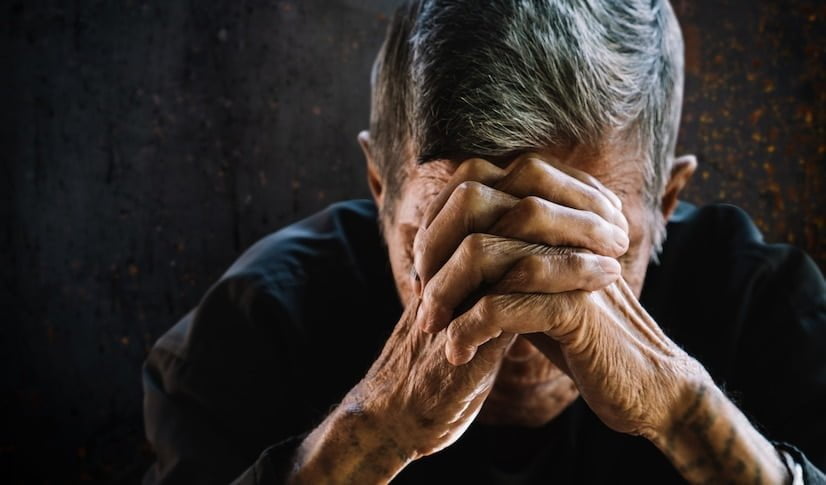The Subtle Signs Of Elder Abuse: What To Look For

Table Of Contents
Did you know that one in ten people aged 60 and older experience elderly abuse at home?
Elder abuse can take many forms, from physical and sexual to even financial. Like child abuse, it’s often hard to detect.
If you’re worried about an aging loved one, it’s vital to learn the signs of elder abuse. If you happen to see any signs of this abuse, you’ll need to tell someone immediately.
Keep reading to learn about the subtle signs of elder abuse.

1. A Sudden Refusal to Seek Help
If someone you know suddenly refuses to seek help, it may be a sign of elder abuse. If your friend or family member is being abused, they may be afraid to seek help because they don’t want to upset their abuser.
They may also get embarrassed or ashamed of what is happening to them. If you suspect that someone you know is a victim of elder abuse, talk to them about it in a safe and supportive way. You can also contact your local police department or adult protective services to get help.
2. Changes in the Elderly Person’s Mood or Personality
As we age, our moods and personalities can change. Sometimes these changes can be a sign of elder abuse. If you notice that your elderly loved one is more depressed or anxious, it could be a sign that they are being abused.
Other changes in personality or mood can also be signs of abuse. These can include becoming more confused, agitated, or aggressive. If you notice any of these changes in your loved one, it’s important to talk to them and try to find out what’s going on.
If they are being abused, they may be too scared to tell you, so it’s important to be gentle and supportive. You can also contact your local elder abuse hotline for help and support.
3. Withdrawal From Social Activities
Another subtle sign of elderly abuse is withdrawal from social activities. This may be a result of the elder getting isolated by the abuser, or it may be a response to the trauma of the abuse.
Elderly adults who are experiencing abuse may become withdrawn. They become unwilling or unable to take part in activities that they once enjoyed.
If you notice a sudden withdrawal from social activities, it may be a sign that they are being abused. If this is the case, don’t hesitate to reach out for help.
4. Sudden Changes in Financial Circumstances
If someone you know experiences sudden changes in financial circumstances, it may be a sign of elder abuse. A common indicator is noticing unexpected changes in the bank account or credit card activity. Sudden or large withdrawals of money can also happen.
You should also be wary of changes in their will, power of attorney, or other financial documents. If you see any of these warning signs, take action immediately.
Talk to the person, ask what is going on, and if they are in immediate danger, call the police. Do not hesitate to get in touch with the authorities if you notice this subtle sign of elder abuse. You can also contact an injury attorney for legal help.

5. Unexplained Bruises or Injuries
Unexplained bruises or injuries are often a sign of elder abuse. If you see bruises or injuries in an elderly person, it is important to investigate further.
Losing one’s balance is a common cause of injury in the elderly. But when bruises or injuries persist or are not explainable, it may be a sign of elder abuse.
Bruising is one of the most common signs of elder abuse. Sadly, many bruises go unnoticed. This is because they are on areas of the body that are rarely seen, like the back or thighs.
Always check for bruises in places that are not normally exposed to injury, like the inside of the arms and legs. If you notice any unexplained bruises or injuries, this may be a sign of elder abuse.
6. Making Excuses for Physical Bruises and Aches
Making excuses for physical bruises and aches may be a sign of elder abuse. If an elderly person has bruises and they often make excuses for them, it may be because they’re afraid to tell anyone about the abuse.
Excuses for bruises may include falling, bumping into something, or any number of other things. Aches and pains may be due to arthritis or old age.
If you see an elderly person with bruises or aches, ask them how they got them. If they seem reluctant to answer or make up a story that doesn’t make sense, it may be a sign of abuse.
There are many reasons why abused elders make excuses for their injuries. One reason is that they feel embarrassed or ashamed of what has happened to them. They may also feel like they are to blame for what happened.
Abused elders may also worry that if they tell someone about the abuse, they’ll get put in a nursing home. They often don’t want to feel like they are a burden.
Abusers may also threaten their elders with further violence if they tell anyone. As a result, abused elders often keep the abuse a secret.
7. A Sudden Neglect in Hygiene
If you suddenly notice that a loved one is neglecting their hygiene, it could be a sign of elder abuse. Abuse of the elderly can take many forms, but neglect is one of the most common. Neglect can be intentional or unintentional, but either way, it can be harmful to the elder person.
If you see signs of neglect, such as an elder person who is not bathed, has dirty clothes, or has unkempt hair, take action. Talk to the elder person and see if they are being taken care of properly.
If not, contact authorities to make sure the elder person is safe and receives the senior care they need.
8. Watch Out for Subtle Signs of Elder Abuse
If you have a loved one in an elder care facility, it is important to be aware of the signs of elder abuse. Though abuse can be difficult to spot, there are some subtle signs to look for.
If you suspect your loved one is being abused, don’t hesitate to reach out to authorities. Together we can put a stop to elder abuse.

Did you find this article helpful? If so, read through our other posts for more life insights and advice.
Additionals:
You May Also Like

February 19, 2021
Positive Discrimination – Overview, Explained, Pros And Cons

July 7, 2022
Why Are Firearms So Popular In America?

September 19, 2022






















